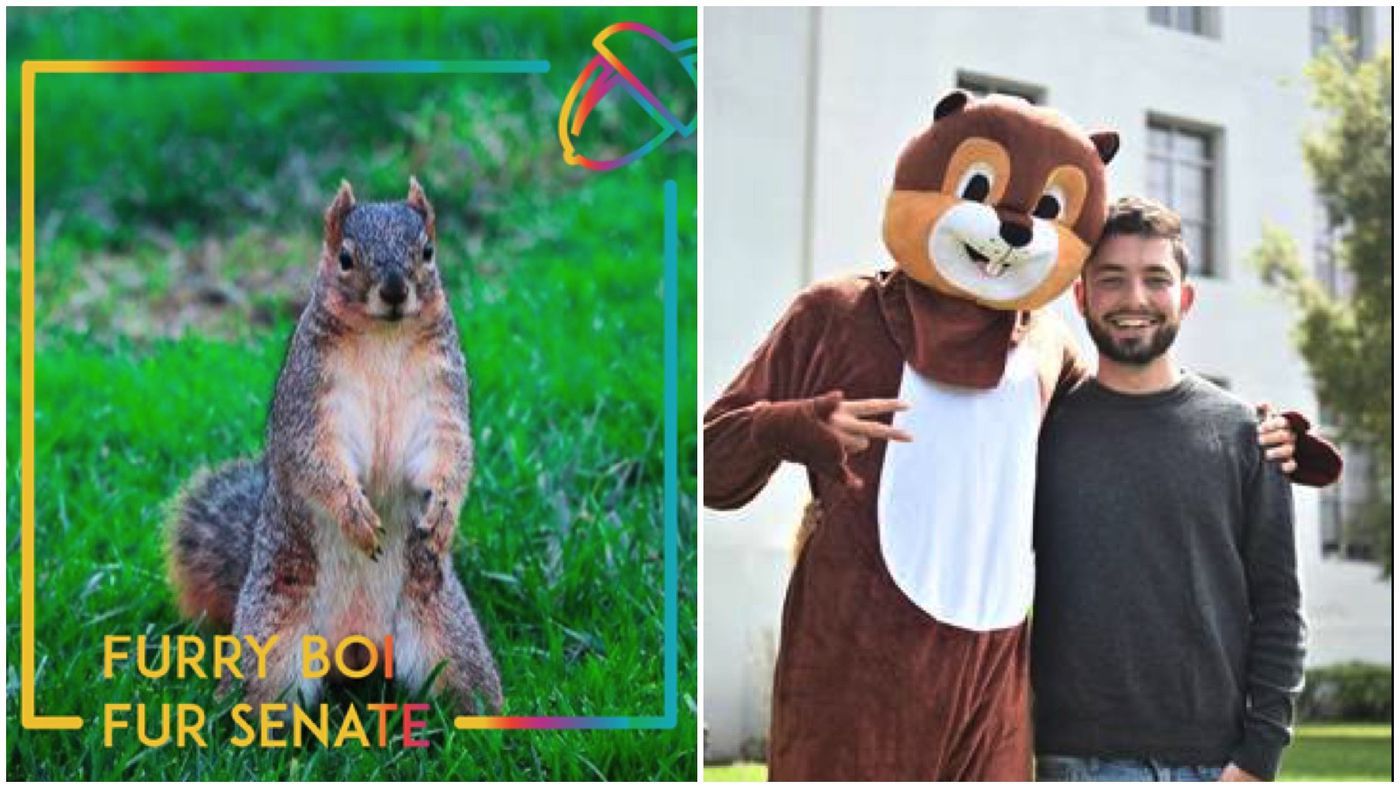I’ve written here on a number of occasions about the important role played by various creatures on our campuses. From animals in halls to prominent pets and from birds behaving badly to the Beasts of UoN, lots of critters have had prominent parts in university life.
The latest animal action involves some grazing goats at the University of Richmond who seem to be involved in a major ‘eco-corridor’ project:
The University of Richmond will welcome a herd of kids this spring to its campus.
Their assignment is to eat the invasive species as part of an eco-corridor project.
The University of Richmond is joining others who recognize that goat browsing is an environmentally friendly landscape management project.
“Invasive species reduce biodiversity, negatively impact ecological land function and are less hospitable to native fauna,” added Andrejewski. “By incorporating goat browsing into our invasive plant removal process, we can meet these challenges head on, while also reducing the need for herbicides and gas-powered equipment.”
The herd will reside in a contained area on the outskirts of UR’s campus for twelve weeks. Following invasive species removal, construction on the Gambles Mill Eco-corridor will begin in the fall with an expected completion next spring.So far, no one has said whether the goats will be assigned extra credit.
Meanwhile, over at the College of William and Mary there’s another team of goats going into action to cut back invasive plants:
A small crowd of people eagerly watched twelve goats squeeze through a trailer door into the brush of the Crim Dell Sunday, April 15. The group, consisting of police officers, college students, a geology professor and the owners of Goatworx, a nearby family farm, then dispersed to either electrify the surrounding white netting or pitch a tent nearby. As odd as the scene may have been, it was the site of a coordinated effort to promote sustainability and nature on campus, and the culmination of years of work by a little-known campus group – the Crim Dell Restoration Committee.
These goats provided a welcome relief to a problem plaguing the Crim Dell – invasive plant species. When a non-native species is introduced to an area where it has no checks on growth, it can quickly overtake and choke off the native plants. According to geology professor and sponsor for the committee Linda Morse, the Crim Dell suffered for years from this problem, notably from bamboo and English ivy. These plants not only destroy the natural area, but also negatively affect the campus aesthetic.
“English ivy is horrible for our Public Ivy,” Morse said.
According to committee member Maura Finn ’20, goats naturally strip away invasive species up to five feet tall, leaving the larger plants and trees untouched.
Goats are clearly the new big beasts on campus.
Sorting the squirrels from the goats
However, at UC Berkeley, a different animal altogether was making waves:
The candidate for a seat in the UC Berkeley student Senate promised safe spaces for squirrels, better access to acorns and support groups for those experiencing habitat loss.
His name was Furry Boi, he campaigned in a squirrel suit and he attracted immediate attention.
Whilst there is a fine tradition of novelty candidates in student elections in the UK, they rarely come out on top.

In this case though Furry Boi won, prompting an immediate backlash:
“It’s a shocking display of privilege to vote for a squirrel over candidates who have actual plans to help students who need it,” the Daily Californian said. “Instead of electing qualified students who had real, tangible ideas … many of you (at least 538 strong) thought it might be a funny joke to have a man dressed up in a squirrel costume with no real platforms represent you at the administrative table.”
Goats and squirrels are clearly offering a new kind of animal magic on campus.
(With thanks to my colleague Jonathan Lamley for drawing my attention to Furry Boi.)













And then there was the case of the resident in a who, being an enthusiastic biology student took to some rewarding extra-curricular activity by breeding and selling black widow spiders. And so yet another clause had to be added to the proscriptions in the terms and conditions of halls of residence. I am not sure how the ‘no radioactive materials’ came about but it must have equally shocked the cleaners.